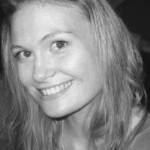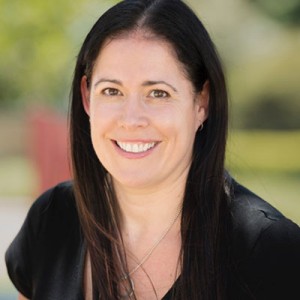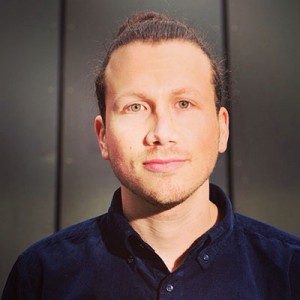“Stay hungry. Stay foolish”. Legendary words now, thanks to Steve Jobs, but back when he first uttered them during the Commencement Address to the graduating class from Stanford University in 2005, nobody knew the extent of what words like that would be like to people, 10 years later, having a red-hot go of making their dreams come true. Whether it’s entrepreneurial, a career change or a way to build other people up, staying hungry and staying foolish applies to anyone with an idea and the chutzpa to back it up.
Here we chat to 3 people who believe in dreaming big, and, in the process, helped others, too.
What is your business about?
Playroom to Boardroom is a community of working and business mums, and also those who are planning their return into the workforce. We run events and provide networking opportunities, support and information for our members.
Why are you doing it?
Being a mum is hard. Almost everything you do is judged and frowned upon by someone. Once you decide to return to work it is almost impossible not to experience guilt. It’s incredibly important to get women back to the workforce for many reasons. For businesses, for the economy, for women’s mental health, for family finances, for positive role modelling, and also simply because that is what many women want to do.
There is a long way to go unfortunately. Many companies and employers need to be educated. Women need to be supported and their own view of their value as a working mum often needs to be challenged.
It is ABSOLUTELY possible to be a happy and successful working mum with a beautiful, well balanced and totally satisfied family. The first step is for women to believe that of themselves. The next is for them to believe that of others, despite what their own choice may be.
I could talk about this for a long time, but basically Playroom to Boardroom exists to help eliminate mothers’ guilt and to build a network of strong, supportive and successful working mums. Together we can achieve more.
What did it take to get here?
A lot of hard work! I left my full time role in December 2014 to focus on Playroom to Boardroom. I spent December planning and designing the website which my partner built for me. We finally went live at the end of January 2015. In the 5 month since I left my old role I have found a premises to work from, designed and built a website, designed a logo for the company, worked up a rough business plan, interviewed more than 25 high profile successful working mums, run 4 events with another coming soon, written 30 articles for my own website, written 5 articles for iVillage website, been interviewed several times, written several guest posts for other blogs and websites, built up relationships with product suppliers for my events, built up corporate relationships for my events, taught myself about marketing, read numerous books to help build the business, networked with many people who have pointed me in certain directions and much more. I am also the admin and accountant for the company so have kept all the records, done the tax returns and all the other back office stuff.
I have worked hard, followed big ideas, taken some risks and worked on many relationships which I hope will be mutually beneficial to me and the other parties.
What effect has Playroom to Boardroom had on you personally?
Starting the business has reinforced that this is something which I have a real passion for. It has made me realise that when your work makes a real difference to others then it is not really work at all.
My personal finances have taken a bit of a blow, going from a senior management position in an international group of companies to running a start up.
It has also made me realise that I can do a lot more that I am “qualified” for. Yes, I am an accountant, but I can also write articles good enough to be published elsewhere. I can network, I can market and I can organise and run events.
I have been on an emotional roller coaster ride too. From the highs of a successful event, talking to people who share a passion for my ideas and seeing people sign up for membership to the lows of financial pressure, desperately hoping I can fill an event that I have committed to and the loneliness of making most of my decisions by myself.
It has also made me realise that I can do a lot more that I am “qualified” for. Yes, I am an accountant, but I can also write articles good enough to be published elsewhere. I can network, I can market and I can organise and run events.
I have also realised that the saying “If it was easy then everyone would be doing it” is most definitely true!
What is your business about?
Achieving personal goals is really difficult, right?! Whether it’s to quit smoking, lose weight, eat healthier, or exercise more we often get side-tracked by distractions, lack motivation or simply slip back into routine. But did you know that when it comes to achieving goals, research shows that chance of success increases by 33% if it is shared with others[1] and by up to 72% if money is put on the line[2]?
Promise or Pay is a social motivation platform that combines these two insights to help you stick to your goals by donating money to charity if you don’t follow through, and by encouraging others to donate if you succeed.
Promise or Pay ensures a win-win outcome is always achieved and you are left feeling good no matter what happens! It motivates you to do the things you most want to do with you life, while creating a more engaging, personal and empowering way to donate to charities that make a better world.
Why are you doing it?
I’m driven by the desire to help others, I’m passionate about positive social change and I believe in the power of social entrepreneurship to tackle some of the world’s biggest problems. Through Promise or Pay I hope to change the way people go about achieving their goals and the way charities go about fundraising. My vision is to create a platform that inspires people to be the best that they can be, and, at the same time, encourages and facilitates millions of dollars in donations to charities.
My vision is to create a platform that inspires people to be the best that they can be, and, at the same time, encourages and facilitates millions of dollars in donations to charities.
What did it take to get here?
Resilience and focus. Curiosity, gratitude, and an eagerness to learn. Luck and naivety. Building a network of mentors and advisors and drawing on their experience, skills and knowledge. A willingness to take risks. The support of family and friends. A lot of coffee and a little bit of savings.
What effect has Promise or Pay had on you personally?
Starting Promise or Pay has been an incredibly challenging yet rewarding experience. It has taught me the value of stepping out my comfort zone, the importance of seeking feedback and the benefit of building a strong and supportive network. I have learnt that I am most balanced when I am inspired, being challenged and doing something that I feel is meaningful. The experience so far has strengthened my resilience and ignited my eagerness to learn. To know that I can take an idea, a simple thought, and make it a reality that adds value to people’s lives is a wonderful and encouraging feeling.
 Kathy Wong, Chief Energy Officer, Moeloco
Kathy Wong, Chief Energy Officer, Moeloco
What is your business about?
Moeloco is a social cause product. Our business designs and manufactures a flip flop where each shoe has a positive message such as “peace”, “happiness”, “love” or “dream” on the front, and the same words are etched out of its sole. When worn in the sand these words are left as footprints. For every Moeloco flip flop sold, we donate a pair of much needed shoes to these children in India, many of who are orphans or street children with the The Hope Foundation.
Moeloco, means “Dream Crazy” and that’s my dream – to impact poverty.
Moeloco, means “Dream Crazy” and that’s my dream – to impact poverty.
Why are you doing it?
My basic motivation is to connect people to their hearts so that they can find their purpose. I know this will allow them to create a difference in their own worlds, and that then touches others. This ripple effect just keeps spreading out. I wanted to create stronger human connections, community and that led me to wanting to make a global difference with
What did it take to get here?
Twenty years of personal development, then the courage to get out of my own way and some ignorance for what I was getting myself into.
What effect has Moeloco had on you personally?
I’ve started to become more conscious of all my purchasing decisions, and I find myself being much more outspoken. I’ve had to become more confident and courageous to speak out and stand for what I believe in. It’s also meant letting go of certain friends who do not support me in my new life.
Want to connect with more like-minded game changers? Here are a few ways you can get the internal cogs turning once again:
- Subscribe to Leaders in Heels for more tips and inspiration for living the life of your dreams
- Attend functions and seminars like the SHINE event, a one-day gamechanger of an experience on the 9th May which brings together some of Australia’s brightest innovators, entrepreneurs, changemakers, techno whizzes, and other people crazy enough to think they can change the world
- Follow inspirational people on social media or via their blogs. They don’t even have to be involved in the same industry as you, although that does help. What’s important is that you find them inspiring and they stir an urge in you to shake things up!
- Surround yourself with motivating people. It’s hard being in a social circle of naysayers and Debbie (or Alice, or Kelly, whoever!) Downers when you’re ready for your upward spiral of success
- Finally, dream big! Stay hungry, stay foolish. With determination, hard work and patience, anything is possible!
[1] Matthews, Gail, PhD. (2014). Goals Summary Research. [ONLINE] Available at: http://dominican.edu/academics/ahss/undergraduate-programs-1/psych/faculty/fulltime/gailmatthews/researchsummary2.pdf
[2] Ayres, I. (2010). Carrots and sticks: Unlock the power of incentives to get things done. New York: Bantam Books.
 Erica Enriquez
Erica Enriquez
Erica is a Sydney-based writer and digital marketer, and can often be found pounding away on a keyboard, writing about everything from travel, lifestyle, well-being and anything in between. When she is not writing, she is STILL writing, developing copy and content for websites and marketing collateral. Erica is passionate about film, literature and culture (high brow and low brow), as well as pro-social causes supporting cultural engagement (counting travelling as one of them). In her spare time, she loves nothing more than to curl up with a good book, go for a nice dinner with friends or spend time with her partner.
 Erica Enriquez
Erica Enriquez






 Bhawna Saini is an India-based contributing writer and editor at
Bhawna Saini is an India-based contributing writer and editor at 



